Colonial abuses hang over King Charles's Kenya trippublished at 01:27 GMT 31 October 2023
The British Empire brutally suppressed an uprising in Kenya in the 1950s. Its victims cannot forget.
Read MoreThe British Empire brutally suppressed an uprising in Kenya in the 1950s. Its victims cannot forget.
Read MoreThe President said the rugby win should be seen as a sign of hope for the country.
Read MoreThat's all for now from the BBC Africa Live team.
You can find the latest updates on the BBC News website, or listen to our Focus on Africa podcast.
A reminder of Monday's wise words:
Quote MessageA fierce buffalo has its hide made into a shield."
A Luo proverb sent by Owino Onyango Mak'Oburu in Kenya
Click here to send us your African proverbs.
We leave you with some photos from Senegal of the events around the traditional boat races on Saturday in the Senegalese city of St Louis:
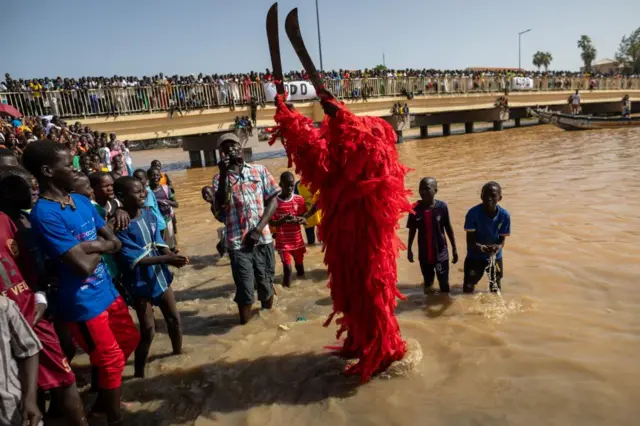 Image source, EPA
Image source, EPA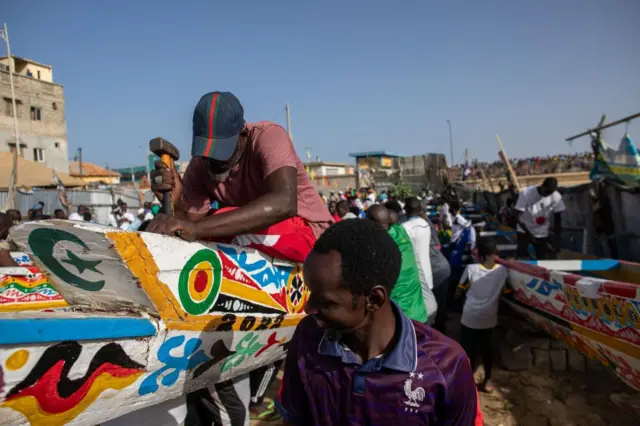 Image source, EPA
Image source, EPAThe Springboks and inspirational captain Siya Kolisi have an impact far beyond sport, say fans and politicians in their homeland.
Read More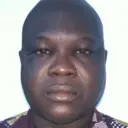 Nichola Mandil
Nichola Mandil
BBC News, Juba
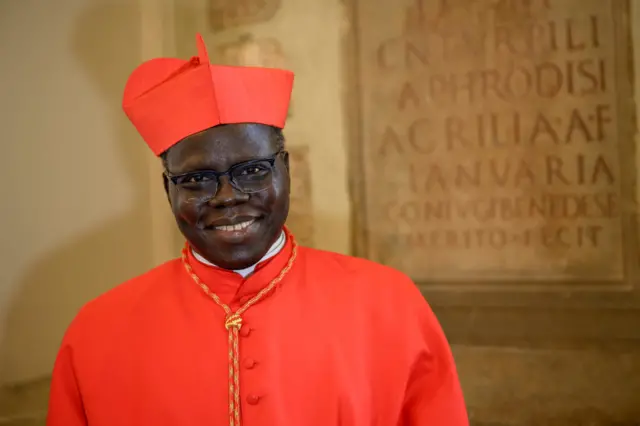 Image source, Getty Images
Image source, Getty ImagesCardinal Stephen Ameyu Martin Mulla was pictured in the Vatican shortly after being appointed
A senior Catholic clergyman in South Sudan has revealed that Pope Francis has instructed bishops to give priority to women's leadership in various activities in their dioceses.
Archbishop of Juba Stephen Ameyu Martin Mulla, who was elevated to the rank of Cardinal by Pope Francis a month ago, returned home on Monday morning from the Vatican.
He is one of the three African archbishops who were elevated to the rank of cardinal by Pope Francis in September - together with Cardinal Protase Rugambwa from Tanzania and Cardinal Stephen Brislin from South Africa. They were among the 21 new cardinals.
Addressing a jubilant gathering St Theresa’s Cathedral in the capital, Juba, Cardinal Ameyu said he had delayed returning because Pope Francis asked him to take part a synod discussion about the role of the Church in evangelisation.
“In the synod, the Pope says, 'Let’s put women first.' If we put women first, this church will stand strong. God willing in our archdiocese we will respect the work done by women in all the committees in our Church.
“Today our life [in South Sudan] has been broken by the war, it has been broken by quarrels in our families, it has been broken by mothers leaving the house, it has been broken by irresponsible fathers who leave the house - all of us have a broken life,” Cardinal Ameyu said.
 Nicolas Négoce
Nicolas Négoce
BBC News, Dakar
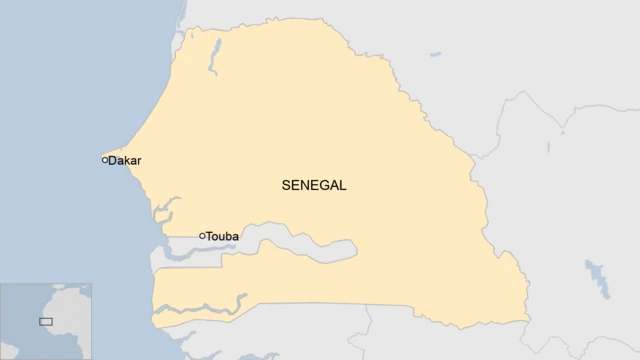
The public prosecutor in Senegal has opened an investigation into the exhumation and burning of a corpse presumed to be that of a gay man in the holy city of Touba.
The body of the young man, who died on Friday, was sent to Senegal’s second largest city for burial on the wishes of his family and in accordance with Islamic law.
Unidentified individuals arrived at the cemetery looking for the man's grave, and when, having identified it, removed the body before setting fire to it in front of a large cheering crowd.
According to local sources, the man was believed to be gay.
The BBC contacted the local religious authorities in Touba but they did not comment.
It is believed the mother of the deceased had buried him "in secret" but locals heard about the accusations of him being a homosexual.
The public prosecutor condemned the act of “extreme seriousness, amounting to barbarism”.
Abasse Yaya Wane indicated that the open investigation would aim to identify the perpetrators and bring them to justice.
This incident has aroused strong indignation from residents in Touba and the rest of the Kaolack region in the west of Senegal.
Many said they thought these acts were "from another age" and called on the authorities to punish those responsible.
Senegal has a majority Muslim population and homosexuality is an offense punishable by between one and five years in prison.
This incident is reminiscent of a similar incident in Guinguinéo, central Senegal, where the grave of an alleged homosexual was desecrated In 2008.
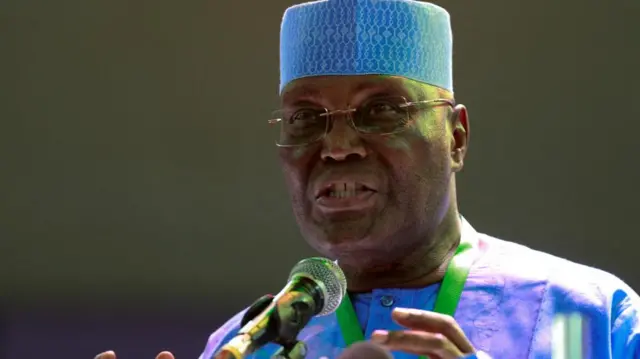 Image source, Reuters
Image source, ReutersAtiku Abubakar came second in February's closely fought election
Nigerian presidential candidate Atiku Abubakar, who failed in his attempt to get the result of February's election overturned in the Supreme Court last week, says his country is now "doomed", external.
The election was the most fiercely contested since the end of military rule in 1999, with three strong candidates for the first time. Bola Tinubu won with 37% of votes cast, against 29% for Mr Abubakar and 25% for Peter Obi, who also challenged the result.
In his first comments since the panel of seven judges rejected his attempts to get what he said was new evidence submitted, Mr Abubakar was scathing in his assessment.
He said that following the ruling "there is really no hope for the country’s democracy and electoral politics".
But Mr Abubakar says he is not giving up. "For as long as I breathe," he said, "I will continue to struggle with other Nigerians to deepen our democracy."
Commenting last week, external, President Tinubu said "the court has done justice to all issues put up for consideration... without fear or favour".
"There is no doubt, with the profound judgment of today, that our electoral jurisprudence and constitutional democracy are further consolidated."
The two students were taken from a kibbutz where they were on an agriculture internship.
Read MoreYoussef Taha
BBC World Service newsroom
Egypt's media regulator has ordered the closure of an independent news website for six months while it is investigated on suspicion of spreading fake news.
Mada Masr is accused of publishing material that damaged national security.
The website's editor, Lina Attallah, has been asked to explain a report that Egypt might have to accept Palestinians displaced by the conflict between Israel and Hamas.
The regulator says it received complaints from the public that the reporting undermined the Egyptian government's policy of refusing to accept Palestinian refugees.
Ms Attallah received the 2020 Knight International Journalism award for outstanding journalism with impact.
Paa Kwesi Asare
BBC News
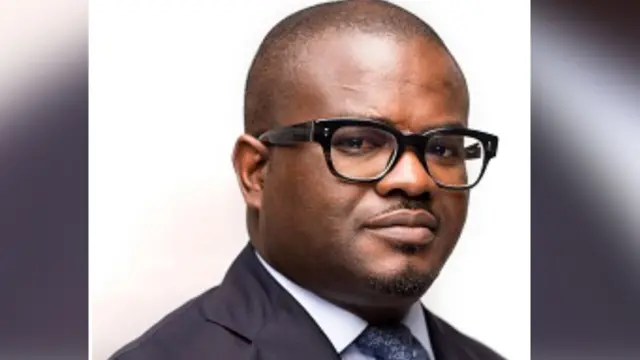 Image source, Ghana government
Image source, Ghana governmentCharles Adu Boahen was a minister in the finance ministry
A now-sacked Ghanaian government minister has admitted that he accepted a cash gift of $40,000 (£33,000) "in order not to offend the sensibility of a potential wealthy investor", according to an official report into the incident, external.
Charles Adu Boahen was dismissed as a minister last November after an investigative journalist caught him on camera appearing to accept the money from someone pretending to be a wealthy sheikh who had expressed an interest in investing $500m in the continent including setting up an Islamic Bank in Ghana.
Ghana's Office of the Special Prosecutor (OSP), which looks into alleged corruption and corruption-related activities, launched a six-month investigation and released its report on Monday.
The secret filming by media company Tiger Eye PI also showed Mr Adu Boahen asking for "20% of the intended investment as his cut" and a fee of $200,000 for the vice-president", the OSP report says. The vice-president knew nothing of the arrangement.
In his conclusions, Special Prosecutor Kissi Agyebeng said Mr Adu Boahen "exhibited [a] lack of sound judgment. His claim that he accepted the cash gift to avoid offending the supposed sheikh lies very thinly".
In addition, Mr Kissi Agyebeng said the former minister had been "quite reckless" in bringing up the vice-president.
Despite these conclusions the OSP said that while Mr Adu Boahen's actions amounted "to trading in influence or influence peddling" they wer not criminal offences in Ghanaian law and as a result he could not be prosecuted.
Matthew Lani garnered thousands of followers by sharing advice and selling medication online.
Read MoreKalkidan Yibeltal
BBC News, Addis Ababa
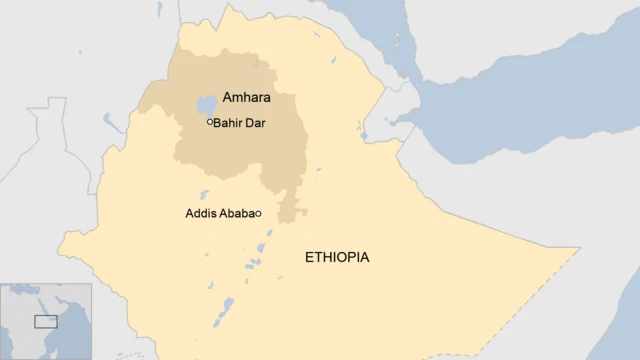
Ethiopia’s state-appointed rights watchdog says the county’s volatile north-western Amhara region, where local militias continue to fight government troops, has seen widespread incidents of extrajudicial killings and sexual violence.
In a report released on Monday, the Ethiopian Human Rights Commission (EHRC) said since August - when violence broke out - many civilians had been killed in drone strikes and also summary executions, often following house-to-house searches conducted by government forces.
In late September, civilians were killed in strikes in at least three towns. The dead included a child who was around 18 months old.
In three other areas, including the regional capital Bahir Dar, extrajudicial killings by government troops, were reported, the EHRC added.
The commission says rape in the context of the conflict has become “very concerning” with at least 200 women and girls are reported to have been raped since August.
Schools had been, and in some areas continue to be, used as military camps in the region, according to the EHRC. Three hospitals had ceased their operations after harassment and arrests of staff and patients with one remaining closed.
Local militias, known as Fano, on the other hand have targeted government officials including a member of the regional council.
Fighting broke out in Amhara after months of simmering tension following a decision by the federal government to disband a state-backed paramilitary group.
In August, the militias entered several of the region’s main cities, temporarily taking control of an airport in the historic town of Lalibela before they were pushed out by the army.
Fighting has since been concentrated in rural areas and small towns.
The region is still under a state of emergency while communication lines are restricted, making it difficult to report on the accusations of abuses.
Read more on the conflict:
Paa Kwesi Asare
BBC News
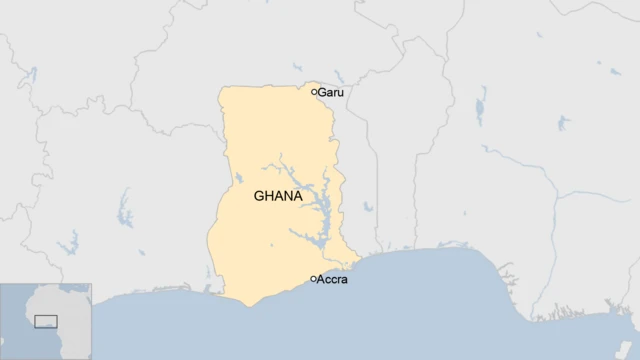
Ghana’s national security ministry has defended the actions of its personnel who have been accused of brutality against civilians in an operation in the north of the country at the weekend.
The ministry said that last Tuesday an initial team of counter-terrorism intelligence officers were deployed to the town of Garu to conduct what it called a "special operation", without going into any more details.
The officers were then attacked by an irate group of youths armed with AK-47 rifles, machetes and other weapons, a ministry statement said.
The youths fired "multiple gun shots at a black Toyota Land Cruiser in which the officers were seated”.
As a result, soldiers went into Garu on Saturday to seize weapons used by the perpetrators of the attack.
The security forces have been accused by some MPs of using excessive force against the young people.
Images shared widely on social media showed some of the youth had sustained various injuries, including lacerations on their bodies and swollen faces.
The national security ministry has not acknowledged these reports and rather focused on the attack on its personnel.
"Deliberate acts that seek to jeopardise the lives of personnel of state security and intelligence agencies will not be countenanced," the ministry said.
Grant Ferrett
BBC World Service newsroom
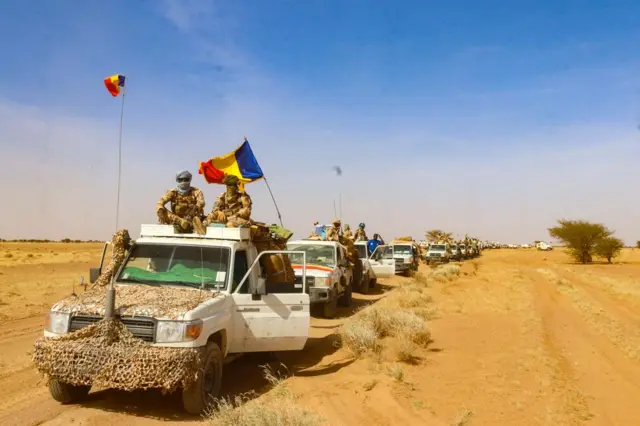 Image source, Minusma
Image source, MinusmaA convoy of UN peacekeepers from Chad has arrived in the Malian city of Gao as part of the nationwide withdrawal of the force.
The troops had driven hundreds of kilometres from outposts in northern Mali, in Tessalit and Aguelhok, in what the UN called dangerous conditions.
They were forced to travel by road, partly because the authorities refused to give clearance for flights.
Mali's military government has demanded that the UN force leave the country by the end of the year, saying its decade-long mission against Islamist militants had failed.
Read more on this story:
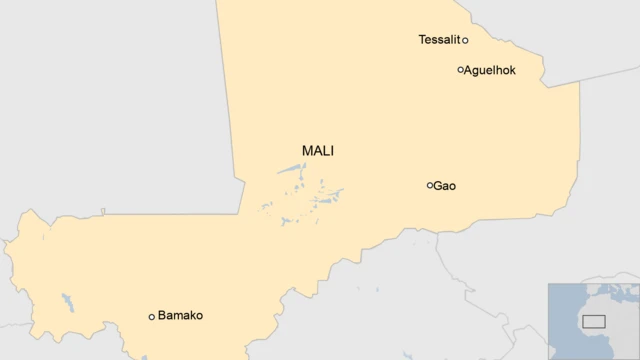
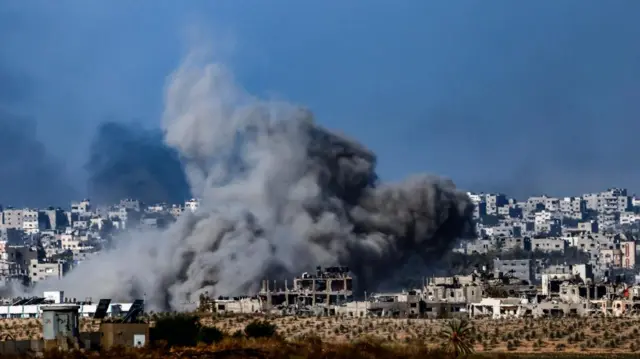 Image source, EPA
Image source, EPAThe Hamas-run health ministry in Gaza says more than 8,000 people have been killed since Israel's retaliatory bombing began
South Africa has said the UN should deploy what it calls "a rapid protection force" to intervene in the Israel-Gaza conflict "to protect the civilian population from further bombardment".
In a hard-hitting statement, external, the international relations ministry highlighted the number of children who have been killed so far in the conflict and also accused Israel of violating international law.
Israel has defended the bombardment and ground invasion of Gaza on the grounds of self-defence, following the killing of 1,400 people by Hamas on 7 October. Two hundred and thirty people were kidnapped as hostages.
The Hamas-run health ministry in Gaza says more than 8,000 people have been killed since Israel's retaliatory bombing began.
Elettra Neysmith
BBC World Service newsroom
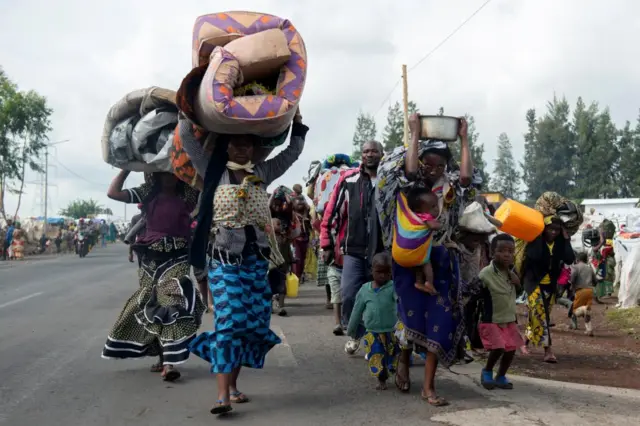 Image source, Reuters
Image source, ReutersIn this picture from last year people can be seen fleeing the violence in North Kivu
The UN says a record 6.9 million people are now internally displaced within the Democratic Republic of Congo because of escalating violence.
The UN's International Organization for Migration (IOM) has collected tracking data from all 26 of the country's provinces.
It says the vast majority of those displaced live in the east where conflict is cited as the primary cause.
In North Kivu alone, up to a million people have fled their homes this year due to the ongoing fighting with M23 rebels.
It warns that DR Congo is facing one of the world's biggest displacement and humanitarian crises.
 Image source, Die Burger
Image source, Die BurgerA leading Afrikaans newspaper, once seen as a mouthpiece for the apartheid government, celebrated the victory with the line "one nation, one team", sports reporter Mohammed Allie says
South Africa's President Cyril Ramaphosa has penned an impassioned call for national unity in the wake of the country's Rugby World Cup victory.
Fans celebrated after the Springboks just edged New Zealand in Saturday night's final in Paris to win the cup for an unprecedented fourth time.
The win "lifted the nation’s spirits, confirming the enduring power of sport to unite and build a nation", Mr Ramaphosa said, external.
But it is so much more than that, according to the president.
The Springboks have a contentious history in South Africa as a symbol white privilege in the apartheid era. But Mr Ramaphosa sees its transformation into a successful multi-racial team as part of the change in the country since the start of the democratic era in 1994.
"If the story of the transformation... is anything to go by, our country will continue to reap the benefits of change if we remain united and if we stay the course," he said.
The country is facing multiple economic problems, including high unemployment, high rates of poverty and frequent power blackouts, and the rugby success has been seen as a welcome break from that.
But the president wants it to be more than that.
"The patriotism we display in sports stadiums should be reflected in our approach to overcoming our challenges."The Springboks’ win has united us in celebration.
"It is our hope that it must also serve to inspire the younger generation to derive important life lessons about perseverance, teamwork, discipline and leadership."
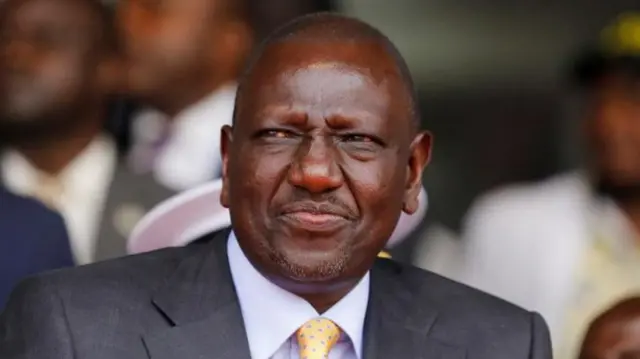 Image source, Reuters
Image source, ReutersLast week, the president announced that he had slashed the executive's travel budget by $73m (£60m)
Kenyan President William Ruto has defended his numerous visits abroad, saying they have benefited the country economically.
Mr Ruto has been criticised for having made the highest number of foreign trips in a year compared to any of his predecessors. Local media say he has been to 38 countries since coming to power in September 2022.
But in an address on Sunday, Mr Ruto said that through the trips, he had been able to secure jobs for Kenyans and bagged several bilateral deals aimed at opening up markets for local produce.
“There are people on my case as to why I am making foreign trips. That’s my mandate as the president. I am the chief agent of Kenya and ambassador who will plan on how the country will move forward,” Mr Ruto said at a church gathering.
The president said he had secured 350,000 jobs and investment opportunities for Kenyans during recent visits to Saudi Arabia and China.
Some other countries Mr Ruto recently visited include Congo-Brazzaville, Belgium, Comoros, the Netherlands and the UK.
Last week, the president announced that he had slashed the executive's travel budget by $73m (£60m).
Kenya's privately owned Standard newspaper has described Mr Ruto as "the flying president".
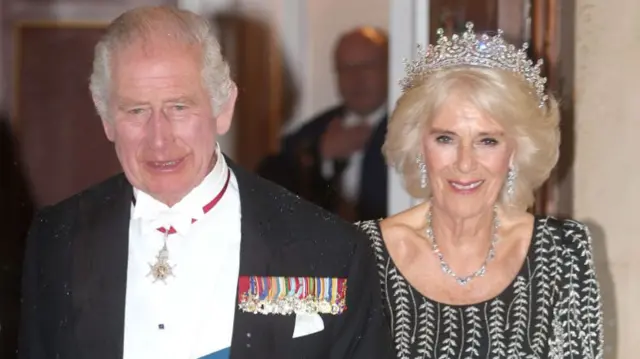 Image source, Getty Images
Image source, Getty ImagesKing Charles III and his wife Queen Camilla are expected in Kenya on Tuesday for a four-day visit
The Kenya Human Rights Commission, which is a non-governmental organisation, has said King Charles III should apologise for abuses committed by the UK during the colonial era.
The monarch is making a four-day visit to Kenya starting on Tuesday, and says he will try to learn more about the wrongs people suffered there.
More than 10,000 were killed when the British authorities suppressed a pro-independence movement in the 1950s - 1,000 were hanged after summary trials.
The rights group on Sunday said it expected an "unequivocal public apology" from the king.
Ten years ago, the UK government formally recognised that torture at the hands of the colonial administrators had taken place.
It expressed its sincere regret and agreed to pay compensation to thousands of veterans of the uprising.
Some Kenyan communities, including the Nandi, Kipsigis and Pokot, are also demanding apologies and financial compensation from the UK government for historical injustices committed against them during colonial rule.
Some of the communities are also calling on the UK to return their traditional artefacts and ancestral lands, which were grabbed by the colonial regime and are still held by British entities.
 BBC Monitoring
BBC Monitoring
The world through its media
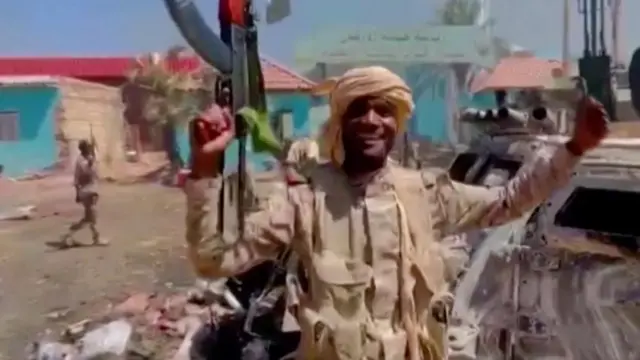 Image source, X/Reuters
Image source, X/ReutersThe RSF has been repeatedly accused of violating international laws by recruiting minors
Sudan's army says it has detained children who were "forced" to fight alongside the paramilitary Rapid Support Forces (RSF) in the ongoing conflict.
State-owned Sudan TV says the unspecified number of children are being held in Wadi Saidna, north of the capital, Khartoum.
On 15 September, the military handed more than 30 children who were held as prisoners of war to the International Committee of the Red Cross (ICRC).
The RSF has been repeatedly accused of violating international laws by recruiting minors in the ongoing conflict in Sudan.
Meanwhile, the RSF said on Saturday that 260 Sudan army soldiers joined its ranks in Khartoum.
Fighting continues between the army and the RSF in Khartoum, Darfur and Kordofan regions amid reports that renewed talks in Saudi Arabia are focusing on reaching a ceasefire and humanitarian support.